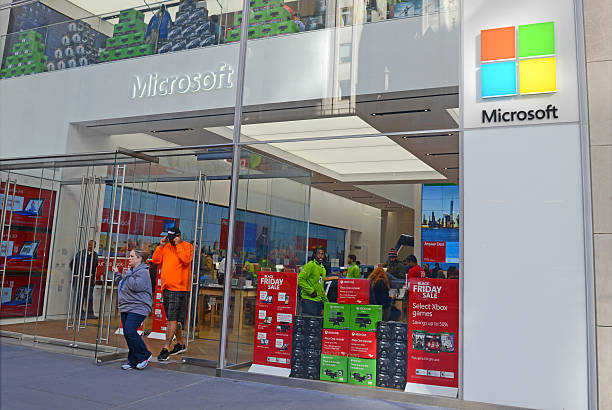In early 1982, David Bunnell, newly appointed editor-in-chief and publisher of PC Magazine, flew to Seattle, Washington, to interview Bill Gates. At the time, Gates was a 26-year-old, fresh-faced co-founder and president of the little software company Microsoft. Bunnell wanted to know how Microsoft’s software contributed to the development of the IBM PC, which was launched less than a month earlier. Bunnell’s publication is named after the IBM PC.
The two men discuss in the interview how it was fun for Bill and his IBM team to participate in the project. They also discuss how IBM and Microsoft worked together to complete the job. The two even talk about sending jokes to each other via an early email system used by the IBM and Microsoft teams. The interview lasted two hours, and Gates shared many details about how software and hardware were created together. Gates makes predictions about PCs and how they will change how people work.
He was, of course, right. The concept of the computer is so different today than it was 40 years ago. It’s no longer the beige 16-bit box primarily made for hobbyists. It has also changed the world. PCs are only a small part of the technology that has revolutionized how people work and live.
PCMag has been around for 40 years. We haven’t deviated from our name (though we have shortened the “magazine.” The scope of our coverage has expanded. Our reporting and reviews now include various categories, including phones, smartwatches, and VR headsets. We also cover digital health and fitness equipment, smart homes, electric cars, and smart home devices. (We still rate and test over 200 PCs yearly to help you choose the best one.)
Bill Gates has been a part of the technology revolution for four decades. He has published 550+ magazines and written more articles and reviews than you can count. As the new editor-in-chief of PCMag, I thought it might be interesting to talk to him to hear his fresh take on where we are, where we are going, and what’s next. Here is what Bill Gates had to say.
Wendy Sheehan Donnell: Did you know what you had done when the IBM PC, with the software that you developed, was created more than 40 years ago?
Bill Gates: Paul Allen and myself built our company on the revolutionary idea of software as a powerful tool. Microsoft was founded in 1975 with the dream of a computer in every home and on every desk. We knew the magic chips, and the software they could build with them, would encourage everyone to use computers. We then talked about having information at our fingertips. Cell phones and sensors have certainly surpassed the original dream. It still goes back to the early work driven by great software and chips.
Back in the day, you considered purchasing PC Magazine (Opens in a New Window) and regretted your decision. What role did early computing magazines like ours play in developing the PC industry?
People forget that computers are now so common and integral to our daily lives that they were once a small group of nerdy enthusiasts. The Home Brew Computer Club was one of many clubs where people would gather and discuss the latest advancements. PC Magazinereally bridged the gap between hobbyists and the larger audience looking for usable and accessible computers. PC Magazine reviews, and feedback was the key factor that helped push the industry to move from a niche to changing world.
In 2062, what do you believe we’ll be reading PCMag.com about? When do you believe we will shift into the Post-PC Age in 2062?
Chips and software are available in many different form factors today. Mobile devices, which fit into our pockets, are the most popular. We also use it to power our TVs. It’s in our cars. At this point, it’s pretty widespread. We’ll eventually have glasses that use augmented reality and robots that do more than just repeat tasks on production lines.
As these chips become more powerful, and the AI software algorithms figure out how best to create personal assistants that can help us with various tasks like reading and giving advice on scientific discoveries, the sky’s the limit. It’s still a long road ahead, but it is really exciting.
What is the biggest technology challenge we will face in the next 40 years, and how can we meet it?
We face many challenges that will require innovation and technology. Climate change is one of the biggest challenges. Another big issue is political polarization. How can we all work together to minimize violence and wars? It’s impossible to solve this problem with technology, but our interconnectedness and how we interact are closely tied to the flow of information around the globe.
AI has the potential to make the world a better place, but we must be careful and ensure that it is developed correctly. Microsoft and OpenAI are taking a clever approach. I am optimistic that the younger generation can help find solutions. They are more educated, aware of social problems, and knowledgeable. It will require a lot of brilliant minds and innovative ideas.
How difficult was it for you to give up a career in technology and Microsoft?
Although my daily focus has shifted to philanthropy, I am still heavily involved in technology. I regularly meet with groups at Microsoft to discuss their product plans. This is something I enjoy. My work at the Foundation, where we explore digital currencies or empower health workers with digital devices, challenges me.
My philanthropic work has required me to learn new fields, such as biology and climate science. My job makes me learn new things, which is something I enjoy. We have a chance to cure HIV and provide health workers with the tools to treat people anywhere in the world when digital advances and biotechnological advances combine.
I use different devices depending on my location and needs. I use a Samsung Galaxy Z Fold3 cell phone, which has a large screen. Microsoft Surface Laptop 4 is what I use when I travel. On my desk at home, I use a Surface Studio 2 All-in-One PC.




